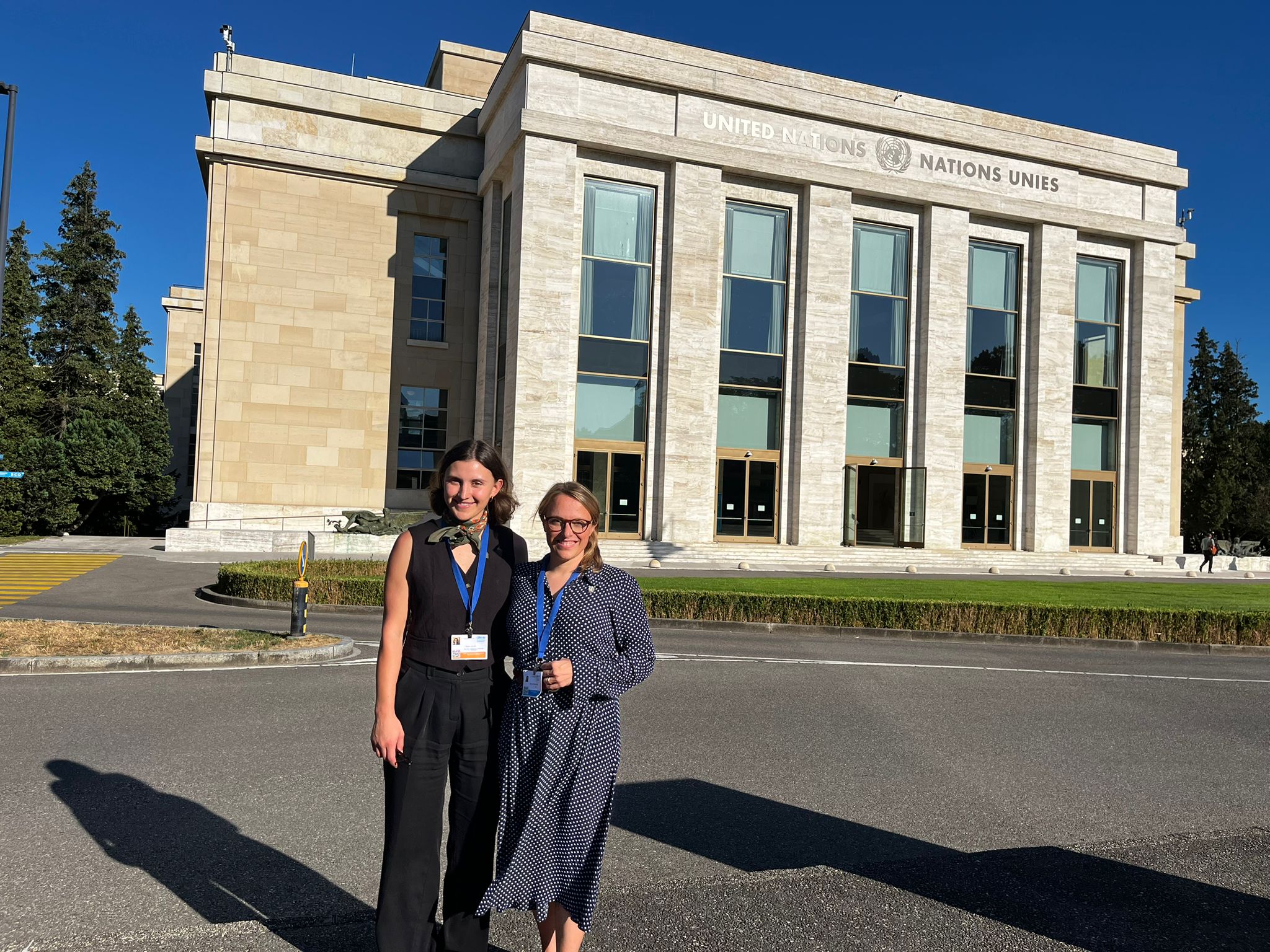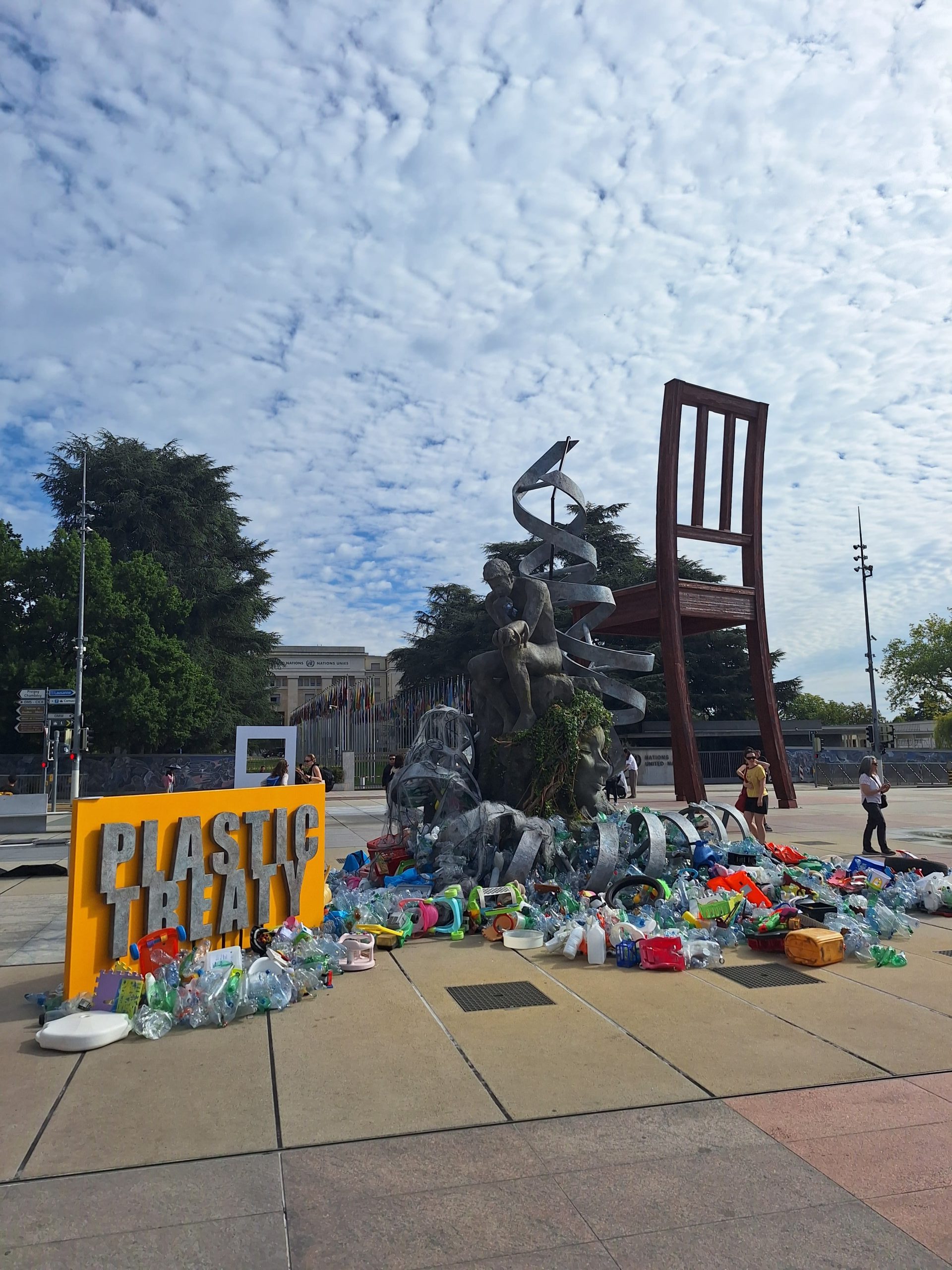
From 5 to 15 August 2025, Associate Professor Aleke Stöfen-O´Brien, at the WMU-Sasakawa Global Ocean Institute (GOI), attended the second part of the fifth session of the Intergovernmental Negotiating Committee (INC5.2) to develop a global plastic treaty as part of the delegation of the International Maritime Organisation.
Second part of the fifth session (INC5.2)
of the Intergovernmental Negotiating Committee (INC) on an internationally legally binding instrument to end plastic pollution, including in the marine environment
Key areas of divergence included proposals to limit plastic production, the development of criteria for plastic products, the establishment of a financial mechanism to support implementation, and the decision-making structure of the future agreement. These topics remain highly sensitive and politically charged, particularly given the differing capacities, priorities, and interests of states.
Nevertheless, it would be inaccurate to characterise INC5.2 as a failure. Despite the lack of consensus, the session did see progress in identifying areas of convergence and refining options in several parts of the draft text. A sign that while divisions remain, there is a shared understanding of the urgency of the issue and a collective commitment to continue moving forward.

The Road Ahead
The road to ending plastic pollution will not be straightforward, but the global momentum behind this process remains strong — and the stakes could not be higher.
For more information please contact the WMU-GOI at goisecretariat@wmu.se
About the World Maritime University
The World Maritime University (WMU) in Malmö, Sweden is established within the framework of the International Maritime Organization, a specialized agency of the United Nations. The mission of WMU is to be the world centre of excellence in postgraduate maritime and oceans education, professional training and research, while building global capacity and promoting sustainable development. WMU is an organization by and for the international maritime community and is committed to the United Nations 2030 Agenda for Sustainable Development.
About wmu-goi
The World Maritime University (WMU)-Sasakawa Global Ocean Institute (GOI) is an independent focal point for the ocean science-policy-law-industry-society interface where policymakers, the scientific community, regulators, industry actors, academics, and representatives of civil society meet to discuss how best to manage and use ocean spaces and their resources in accordance with the United Nations 2030 Agenda for Sustainable Development. The Institute was inaugurated in May 2018 and made possible through generous support from The Nippon Foundation of Japan, the Governments of Sweden, Canada, and Germany, as well as the City of Malmö.
About INC5.2
In March 2022, at the resumed fifth session of the UN Environment Assembly (UNEA-5.2), Member States adopted a historic resolution (5/14) mandating the UN Environment Programme (UNEP) to convene an Intergovernmental Negotiating Committee (INC) to develop a legally binding instrument on plastic pollution, including in the marine environment
The INC has since held sessions in Uruguay (2022), France (2023), Kenya (2023), Canada (2024), and Korea (2024). The process continued with the second part of its fifth session (INC-5.2), convened from 5 to 14 August 2025 at the Palais des Nations in Geneva, Switzerland.
